My 14-month-old daughter has struggled with reflux since the day she was born. As my fellow reflux baby mamas know, it is a difficult journey (for mama and baby) often filled with unanswered questions. I do not claim to have the one right answer regarding the best treatment, and we can respectfully disagree on this issue. But for those mamas who are debating whether or not to use reflux medicine for their babies or toddlers, here is why I chose not to.
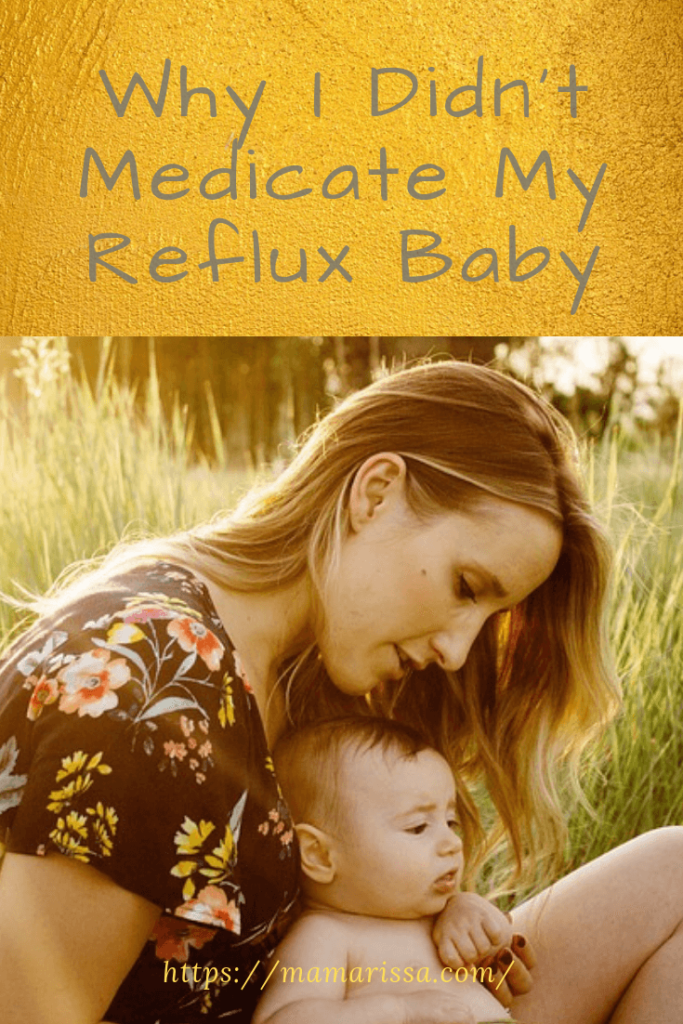
Please note that I am not a medical professional and nothing in this post should be construed as medical advice. Please consult with your baby’s pediatrician regarding the best care for your baby.
Effects of Proton Pump Inhibitors
PPI (proton pump inhibitor) reflux medications, such as Prilosec and Nexium, reduce the amount of acid produced in the wall of the stomach and are prescribed with the intention of making refluxed liquids less acidic and painful.
Reducing your child’s pain sounds like the “right” and humane thing to do, doesn’t it? I have struggled with guilt over being unwilling to try something that might ease my daughter’s pain for the entire first year of her life.
However, sometimes letting your child experience some pain now is a better alternative than doing something to unnaturally change how her young system operates, ultimately leading to more serious health consequences down the road. The research suggests the long-term effects of these medications can be serous
Studies have shown an increase in bone fractures for both infants and adults who take PPI’s long-term (Source). Quite a bit more disturbing is the fact that taking PPI’s long-term has been associated with a more than doubling in the risk of developing stomach cancer. This risk increases with more regular use and longer duration of use (Source).

PPI’s have also been shown to cause intestinal bacteria overgrowth – possibly due to the reduced acid which normally helps kill off harmful bacteria – leading to illnesses such as pneumonia and gastrointestinal infections (Source).
Additionally, babies who take PPI’s are more likely to develop food allergies. This is thought to be because interfering with acid production in the stomach prevents adequate protein digestion and absorption which causes the body to label these proteins as something harmful (Source).
Infants who take these drugs are also more likely to develop allergies to medications and suffer from asthma (Source). More seriously but further down the road, PPI’s may even contribute to the development of dementia, chronic kidney disease, and heart attack (Source).
And finally, if all those possible outcomes are not reason enough to fear this type of reflux medicine, researchers have also found a possible 50% increased risk of dying within five years for people taking PPI’s versus H2 blockers for one to two years! it must be noted that the group taking PPI’s was somewhat sicker and older than the group taking H2 blockers, but the risk remained the same when they adjusted for those characteristics (Source).
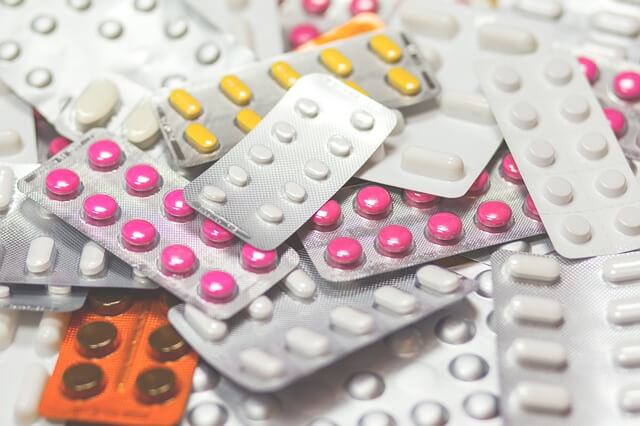
Effects of H2 Blockers
Similar to PPI’s, H2 blockers, such as Zantac and Tagamet, depress the stomach’s production of acid for the same purpose – to make refluxed material less acidic and painful. H2s are not considered to be as effective for GERD (gastrointestinal Esophageal Reflux Disease) as their more potent counterparts, but they also don’t have as many known long-term negative effects.
Like PPI’s, H2 blockers increase the risk of contracting pneumonia and can additionally cause low levels of magnesium due to reduced nutrient absorption from decreased acidity in the digestive system. Low magnesium can lead to muscle cramps, tremors, anxiety, irregular heart rhythms and seizures. Another possible repercussion of taking H2s long-term is impaired fertility in males (Source).
H2s are only FDA (Food and Drug Administration) approved for short-term use and the body grows tolerant to them when used continually (Source).
Why I Still Object
Although the list of potential health problems arising from H2s is, at this point, much shorter than that of PPI’s, I am still not a proponent of treating manageable infant reflux by this means.
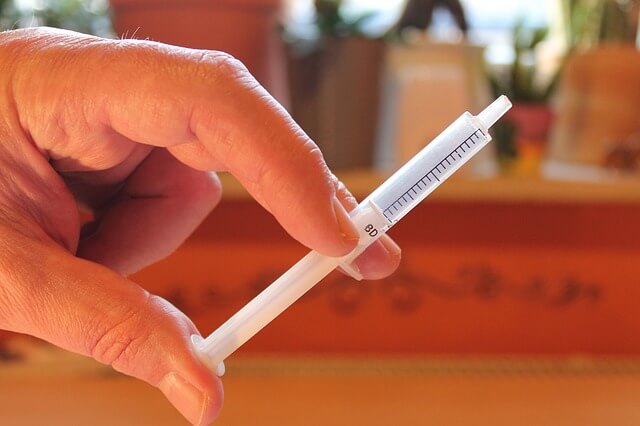
Why am I against giving my daughter this relatively “safe” medication? Well, PPI’s are called “safe” too in the medical world, but I certainly would not agree with that.
Some medications are safer than others, and there are certainly times when the risks of the illness are worse than the risks of the medicine. But every medication and medical intervention carries with it side effects and changes to the body that may be as bad or worse than the initial condition.
There are some babies who cannot eat enough or gain enough weight as a result of their reflux. In this situation, it is obviously healthier for the child to be on a medication that reduces his pain enough for him to eat and thrive.
But when the reflux is not impacting other areas of the child’s health, my daughter’s pediatrician (who is also a GI specialist) agrees with me that medicine is not the best option. He also stated he has never seen a child with reflux grow up to have damage to their esophagus unless they start drinking and smoking.
Now, In full disclosure, we did recently try giving my daughter Zantac hoping that if it made a significant difference, we could train her to sleep on her own. However, after zero improvement, my husband and I decided not to continue trying different medicines because we were so uncomfortable with her taking it in the first place.

Fortunately, my daughter and I have recently been able to transition to sleeping together on a mattress at night and she now sleeps for part of her naps in her crib, so the sleep situation has become much more manageable and we do not really feel the need to “fix” it anymore at this point.
To You, Reflux Baby Mama
You know what is best for your child. All moms make mistakes, and we won’t always get it right, but we also know our children better than anyone else – you have to do what works for your family.
As always, do your research, make your own decision, and then share your thoughts in the comments below!
Update: Since writing this post several years ago, my daughter continues to have acid reflux. We recently took her to a new GI specialist who once again assured us that even after 5 years of having reflux, it is very unlikely that she will develop any damage from it. As she has not outgrown the reflux, we do now give her an H2 blocker as needed for her reflux when she is experiencing a sore throat or sleep disturbances from it.
Additionally, I recently gave birth to my second baby who also has reflux (although not as bad as her big sister’s was as a baby), and her pediatrician told me they do not generally recommend medication for infant reflux. As the risks and long-term effects of being on reflux medication have become more well-known, pediatricians have become more conservative about prescribing them for babies.
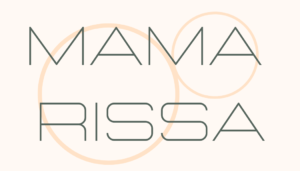
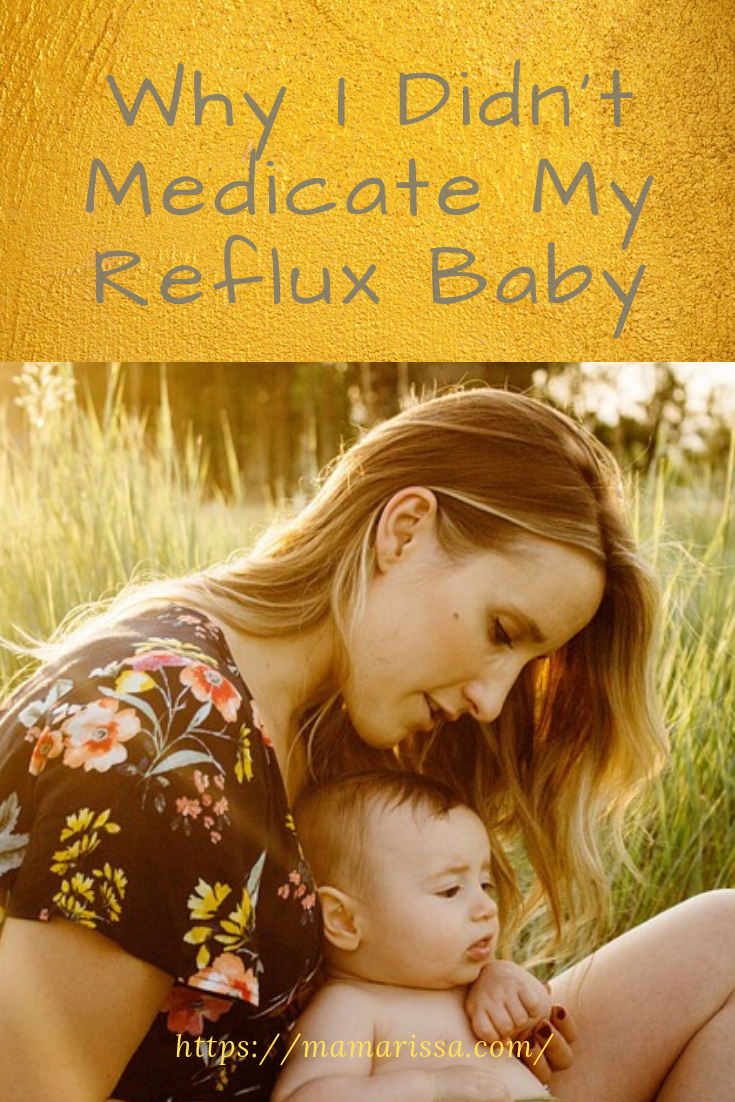



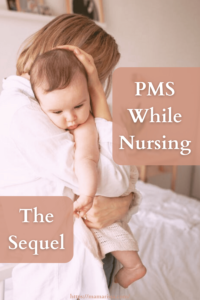
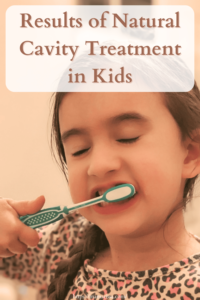
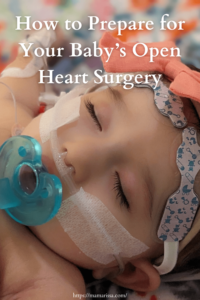
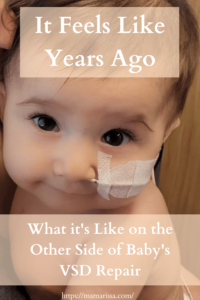
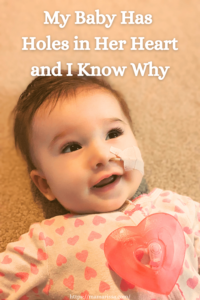
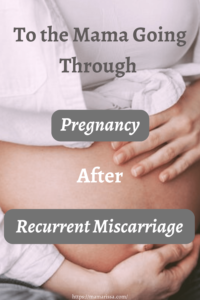
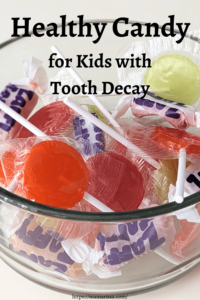
Leave a Reply